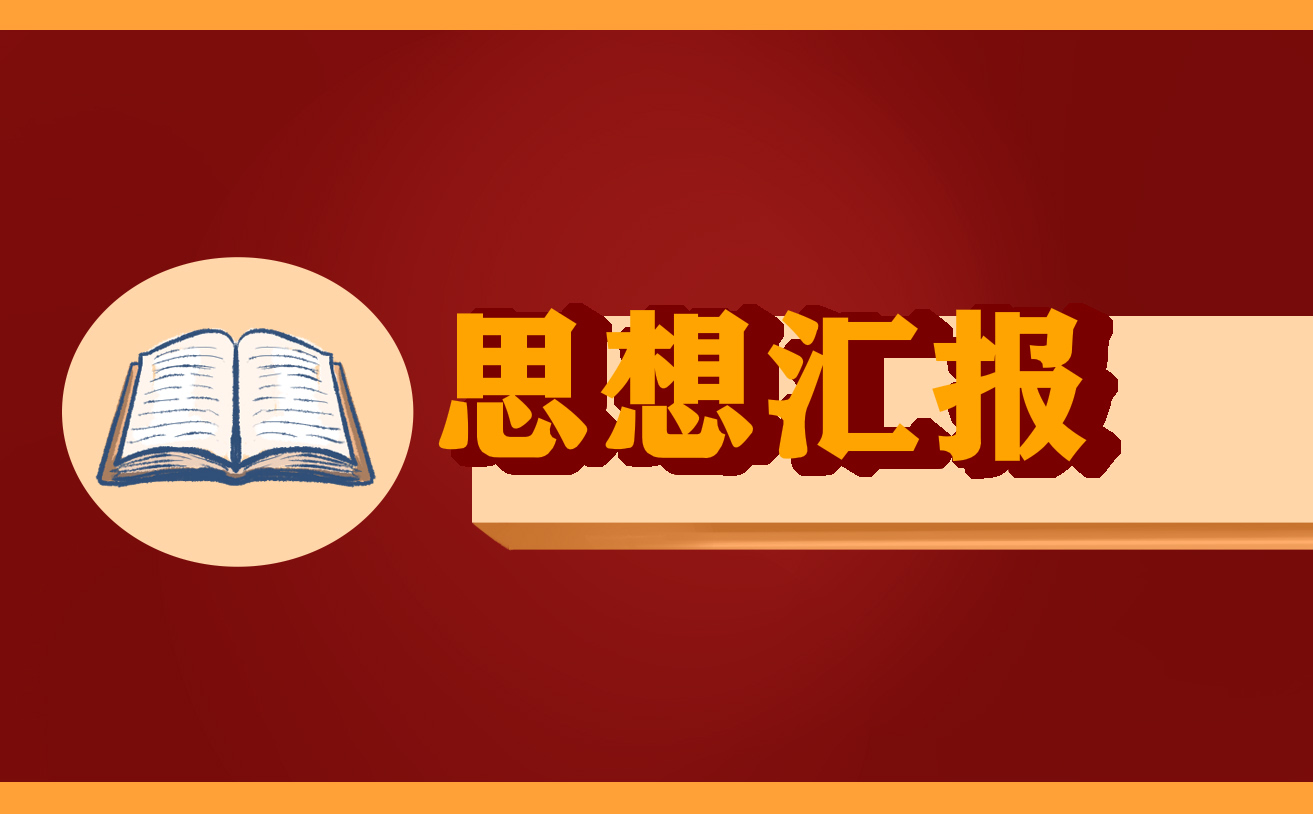现在进行时:现在进行时思维导图
时间:2018-12-28 03:26:23 来源:柠檬阅读网 本文已影响 人 
1.现在进行时的构成 现在进行时由“am/is/are+动词现在分词”构成。 肯定式: I am/"m working. He(She , It ) is working.
We (You, They) are/"re working.
否定式: I am not/"m not working.
He(She, It) is not /isn"working.
We (You , They) are not /aren"t working.
疑问式: Am I working... ...?
Is he(she, it )working... ...?
Are you(we, they) working?
简单回答: Yes, you are. No, you aren"t.
Yes, I am. No, I"m not. Yes, he(she it) isn"t. No, he(she, it)isn"t.
Yes, we(you, they)are. No, we(you, they)aren"t.
2. 动词-ing形式的构成及其读音
(1)一般在动词原形末尾加-ing.如:
stay---staying do---doing
listen---listeningsuffer---suffering
work---workingspend---spending
look---looking
(2)以不发音的字母e结尾的动词,先去掉e,再加-ing.如:
make---making take---taking
give---giving ride---riding
please---pleasingrefuse---refusing
close---closing operate---operating
(3)以一个辅音字母结尾的重读闭音节词,先双写这个辅音字母,再加-ing.如:
put---puttingsit---sitting
run---running win---winning
begin---beginning
(4)以ie为重读音节结尾的单词,先去掉e,把I变为y,再加-ing.如:
lie---lying tie---tying
die---dying
(5)以re音节结尾的动词,先去掉e,再加-ing.如:
prepare---preparing interfere---interfering
tire---tiringbore---boring
cure---curing
(6)以er结尾的动词,如果是重读音节结尾,先双写r,再加-ing;如果不是重读音节结尾,就直
接加-ing.如:
prefer---preferringwater(浇水)---watering
3.现在进行时的用法
(1)表示说话时正在进行或发生的动作。如:
这时可以不用时间状语,也可以和now, at present, at the moment 等时间状语连用。
有时用一个动词。如look(看),listen(听)。
What are you reading now?
你在看什么?
Liste!Someone is singing in the classroom.
听!有人在教室里唱歌。
(2)表示当前一段时期的活动或现阶段正在进行的动作。如:
They are working in a factory these days .
他们这几天正在工厂劳动。
More and more people are giving up smoking .
越来越多的人在戒烟。
(3)表示现阶段下在进行而说话时不一定在进行的动作,现在进行时的这一用法常与表示一段时间的状语如:these days,this week等连用。如:
They are working in a factory these days.
他们这几天在工厂劳动。
They�e visiting Beijing this week.
这周他们在北京观光。
(4)现在进行时常与always,continually,constantly,forever等表示频度的副词连用,表示经常、反复发生的动作常表示厌烦、不满、赞扬等情感。如:
He is always thinking of his work.
他总是想着他的工作。
They�e forever quarrelling about something.
他们老是为某件事争吵不休。(不满)
(5)现在进行时有时也用来代替一般现在时表示经常性的动作或状态,这时或是为了表示一种感情(如赞叹、厌烦等)或是为了强调情况的暂时性。如:
How are you feeling today ?
你今天觉得怎么样?(亲切)
Linda is doing fine work at school.
琳达在学校学习挺不错。(赞美之意)
(6)有些动词:如come,go ,leave,arrive,begin ,start ,stay 等的现在进行时可表示将要发生的动作,一般跟时间状语,表明动作发生的时间。如:
The train is arriving soon.
火车要到了。
Are you going anywhere tomorrow?
明天你到哪儿去吗?
(7)有的动词不能用于现在进行时。这些词通常是表示感觉、感情、存在、从属、思维等的动词。如:
表示感觉的动词:see,hear,smell,taste,feel,notice.look.,seem,appear.
表示感情的动词:hate,love,fear,like,want,wish,prefer,refuse,forgive(原谅)。
表示存在的状况:be ,exist(存在),remain(保持),stay ,obtain(获得)。
表示从属或占用:have,possess(拥有),own(拥有),contain(包含),belong(属于),consist of(由……组成),from(形成)。
表示思考、理解:understand,know,believe,think.,doubt,forget,remember.
1.进去进行时的构成
过去进行时由“was /were+现在分词”构成。(以动词work为例)
[注意]
肯定式: I(He,She, It)was working.
We(You, They)were working.
否定式:I(He, She,It)was not working.
We(You, They)were not working.
疑问句: Was I(he, she, it )working......?
Were we (you ,they)working......?
简单回答: Yes, you were. No, you were not.
Yes, I was. No, you were not.
Yes,he(she, it)was. No,he(she, it )was not.
Yes, you(we, they)were. No, you (we,they)were not.
was not可缩写成wasn"t; were not 可缩写成weren"t.
2.过去进行时的用法
(1)过去进行时表示过去某一个时间或某一段时间内正在进行或发生的动作。通常与表示过去的时间状语连用。如:the, at this/that time,yesterday, at nine, last night等。
At 8:00 o�lock yesterday evening I was having dinner with some friends.
昨天晚上八点,我在和几位朋友一起吃饭。
The doorbell rang while my mother was cooking the dinner.
在妈妈做饭时,门铃响了。
(2)表示移动的动词。如:come,start, stay, leave,fly等词的过去进行时,可以表示过去将要发生的动作。如:
He was leaving the following day.
他第二天将要离开。
She asked when I was starting.
她问我何时动身。
(3)过去进行时动词常与always, forever,continually, constantly, frequently等副词连用,代替一般过去时,强调过去经常性或习惯性动作,表示出说话人的赞美、厌烦等情绪。如:
He was forever complaining about something.
他老是怨这怨那。
He was constantly asking questions.
他老是没完没了地提问题。
(4)在含有时间状语从句的复合句中,延续时间较长的动作用过去进行时,另一个动作用一般过去时。
若表示两个延续动作在过去某一时刻同时发生,则主句和从句的谓语动词都用过去进行时。如:
What was Jim doing when the teacher came in ?
老师进来的时候吉姆在做什么?
He read a piece of newspaper while he was waiting for the bus.
他一边等车,一边看报。
[注意]
1.静态动词如be,have,seem,depend on (依靠)等一般不能用于进行时态。
2.表示知觉认识或情感的动词如see,hear,believe,know,like,love,want,wish等一般也没有进行
时态。
3. 一般过去时与过去进行时的用法比较
一般过去时表示在过去某个时间发生的动作或存在的状态;而过去进行时则表示在过去某个特定时间正在进行的动作。如:
Mary worte a letter to her friend last night.
玛丽昨晚给她朋友写了封信。(信已写完)
Mary was writing a letter to her friend at 8:00 o"clock last night.
昨晚八点钟玛丽在给她的朋友写信。
(信不一定写完,只说明了动作的延续)
It was raining this time yesterday.
昨天这个时间在下雨(动作延续)
It rained yesterday.
昨天下过雨。(动作完成)
现在完成时
1.现在完成时的构成(以动词work为例)
肯定式: I(You)have worked.
He(She, It)has worked.
We(You, They)have worked.
否定式: I(You)have not/haven"t worked.
He(She,It)has not/hasn"t worked.
We(You, They)have not /haven"t worked..
疑问句: Have I(you )worked......?
Hashe (she ,it)worked......?
Have we(you, they)worked......?
简单回答: Yes,you(I)have. No, you(I)have not/haven"t.
Yes,he(she,it)has. No, he(she, it)has not/hasn"t.
Yes, you(we, they)have. No,you(we,they)have. not/haven"t.
[注意]
1.助动词have 和has 可以与前面的主语缩略为’ve和’s.如:we"ve,they"ve, he"s ,it"s等。
2.have not 常缩略为haven"t, has not常缩略为hasn"t.
2.现在完成时的词尾变化
现在完成时由“助动词have/has+过去分词”构成。规则变化的过去分词与动词过去式的变化一样,在动词词尾加-ed;不规则变化的过去分词见“一般过去时”一节的不规则动词表。
3.现在完成时的用法
(1)表示过去已经开始,持续到现在(也许还会继续进行下去)的动作或状态;常和表示一段时间的状语,如:today,these days, since---for---,this month,now等连用。如:
They have lived in Beijing since 1972.
他们从一九七二年以来就住在北京。
He has drunk four cups of coffee today.
他今天喝了四杯咖啡了。
(2)表示过去发生或已经完成的某一动作对现在造成的影响或结果。如:
I have just posted a letter.
我刚把信邮寄了。
She has lost her watch.
她把表丢失了。
4.现在完成时需要注意的问题
(1)表示短暂性的动词不能与表示一段时间的状语连用。如:
appear,begin,borrow,buy, close,come ,die, fall,find,finish,join, kill, leave,lend sell, start,stop等。
(2)现在完成时不能和明确指出过去时间的状语。如:
yesterday,last week ,in 1999, two days ago, just now, when I came in等?
但可以和不明确指出时间的状语,如:already, yet ,sometimes, always, often, just, before,
never ,ever, lately, once等连用;
也可和包括现在在内的时间状语,如:this morning,today,this week, this year等连用。
(3)have(has)been 和have(has)gone的区别:
表示“曾到过某地”要作“have(has)been”;表示“已经去某地”要用“have(has)
gone.”试比较:
Where has he been?
他刚才到哪儿去了?(他已回来)
Where has he gone?
他上哪去了?(他现在不在这里)
They have been to Beijing.
他们到过北京。(现在已不在北京了)
They have goin to Beijing.
他们到北京去了。(他们可能在去北京的路上,或者已到北京)
(4)现在完成时与一般过去时在意义上的区别现在完成时表示过去发生的某一动作对现在造成的影响或结果,强调的是现在的情况。因此,它不
能和表示过去的时间状语连用,如:yestenrday,last nigt, three weeks ago, in 2000等。而一般过去时只表示过去的动作或状态,和现在不发生关系,它可以和表示过去的时间状语连用。试比较:
I have seen him.
我已见过他了。(我了解他的情况)
I saw him yesterday.
我昨天看到他的。(只说明昨天我看到他,并不涉及现在的情况)
I have been ill for a week.
我已病了一周了。(现在还在生病)
I was ill for a week.
我病了一周。(过去病了一周)
1.过去完成时的构成(以动词work 为例)
过去完成时
过去完成时由“助动词had+过去分词”构成。
所有人称和数都用“had+过去分词”,其否定式had not常缩写为hadn�。
2.过去完成时的用法
肯定式: I(You)
He(She, It) had worked.
We(You,They)
否定式: I(You)
He(She,It) had not/hadn"t worked.
We(You, They)
疑问句: I(you)
Had he(she, it) worked......?
we(you,they)
简单回答: I(you) I(you)
Yes, he(she,it) had.No,he(she, it) hadnot/hadn"t/
we(you,they) we(you,they)
(1)表示在过去某一时间之前(也称为“过去的过去”)已经发生或完成的动作。常与“by/before+过去的时间”构成的短语连用。如:
How many English songs had you learned by the end of last term?
到上学期末,你们学了几首英文歌?
I had never seen such a wonderful match before that day .
那天之前我从未看到过那样精彩的比赛。
(2)用于以when,as,soon as,as......as,before,until,now,that引导的状语从句或一些宾语从句中以表示动作发生的时间早于主句所表示的动作,可表示原因、动作先后等关系。如:
I saw Li Ping yesterday .We had not seen each other since I left Beijing .
我昨天见到了李平,自我离开北京以来,我们就没见过面。
The train had just left when they got to the station.
当他们到达火车站时,火车刚刚开走。
(3)某些表示意愿、意图等的动词,如:think,hope,want.intend,plan,mean.等,其过去完成时常表示本来打算做而没有做的事。如:
I had thought that all knew about it .
我还以为他们都知道这件事呢。
(实际上他们并不知道)
I had hoped that you would come,but you didn"t.
我本希望你能来,可你没有来。
(4)在No sooner...than...;Hardly(scarcely)..when...的结构中,前面的动词多用过去完成时,如:
No sooner had he arrived home than he was asked to start on another journey.
他刚到家就被要求作另一次旅行。
Hardly had we got into the country when it began to rain.
我们刚到乡间就下雨了。
(5)用于表示与过去事实相反的虚拟条件从句
If he had seen you yesterday,he would have asked you about it .
假如他昨天看到你,他就会问你这件事了。
I should have called you if I had known your telephone number.
要是我知道你的电话号码,我就给你打电话了。
3.用一般过去时代替过去完成时的情况
(1)含有动作已经完成意义的动词,如arrive,enter ,open等,当主句和从句的两个动作紧紧相连时,
两个动作都可以用一般过去时。如:
When I arrived at the station, I learnt the train had already left.
我一到车站,就听说火车已经开了。
When he entered the office, he heard the telephone ringing.
他一进入办公室,就听到电话铃响了。
(2)由连词before, after, as soon as等引导的从句,由于连词本身意义已经说明主句和从句两个动作先后发生的关系,因此,两个动作都可以用一般过去时。如:
After he closed(=had closed) the door, lefte the house.
他关好门后离开房子。
I telephoned you as soon as I got home.
我一到家,就给你打了电话。
过去将来时
1.过去将来时的构成
(1)过去将来时由“助动词would+动词原形”构成。且动词would 常简缩为“d”,例
如:“I"d,”“you"d”,“he"d”等;would not常简缩为“wouldn�”。
(2)过去将来时还可以用“was(were)+going to +动词原形”来表示。
2.过去将来时的用法
(1)表示从过去某一时间看将要发生的动作或存在的状态。在宾语从句里最常见。如:
I wondered why he wouldn"t go with us.
我想知道,他为什么不和我们一起去。
They asked how they would go to Paris.
他们问他们将怎么去巴黎。
(2)过去将来时也可用“was/were going to +动词原形”构成,表示曾经打算或准备要做的动作。
如:
I thought it was going to rain soon.
我认为很快就会下雨。
She said she wasn"t going to be free this Saturday.
她说她这个周六没有空。
(3)过去将来时还可用“was/were+动词不定式”或“was/were about+动词不定式”结构,表示某种过去将来的意义。如:
She said that they were to see their English teacher the next week.
她说下个星期她们要去看她们的英语老师。
We were to finish the work in three days.
我们打算三天内完成任务。
(4)过去将来时常用来表示过去的习惯性动作,这时往往有一个时间状语陪衬。如:
Every evening she would teach us to read and write.
每天晚上她都来教我们文化。
Whenever he was free, he would drop in to have a chat.
每当他空闲时,他都会来聊一阵了。
典型考题精析
1.Mr. Li is not at home. He_______to Hunan.(湖南)
A. has been
B. has gone
C. has went
D. went
[答案]B。评析:本题应用现在完成时,本句句意是“李先生不在家,他去湖南了”。Has gone to 是“已经去了,到没到不清楚,反正还没有回来”的意思,因而选B。误选A,原因是把has been to 与has gone to 弄混,has been to 表示“去过了,已经回来了。”
2. -Would you mind__________a few minutes?
-No,not at all.
A. wait
B. to wait
C. waited
D. waiting
[答案]D。评析:动词mind后应使用动名词做宾语,这类词还有enjoy, finish ,keep, miss等。
3. How did you make the child_________while he was crying?
A. smile
B. to smile
C. smiles
D. smiled
[答案]A。评析:使役动词make, let have 等后面接不带to 的动词不定式作宾语,故而选A。一些学生因缺乏对动词不定式作宾补这一语法功能的理解,误以为空格处应填谓语动词,加之此题中基本时态为过去时,因而误选D。还有些学生因不知使役动词后应加不带to的不定式这一用法而误选B。
4.You"d better________more water, Tom, It is good for your health.
A. drink
B. drinking
C. to drink
D. drank
[答案]A。评析:had better do sth.是固定搭配,因而本句应选A,其否定形式为had better not do sth.
5.-Did you hear her _________this song?
-Sometimes.
A. sing
B. sang
C. singing
D. to sing
[答案]A。评析:本句句意是“你听到过她唱首歌吗?”“有时听到过。”感官动词see,hear feel,watck等词后接不带to的动词不定式表示“看到或听到动作的全过程。”根据题意,故先A.see, hear, fell, watch等词后也可接现在分词作宾补,表示“看到或听到动作正在进行”能的同学会受此干扰忽略了上下文的语境,而误选C。
6.Cotton_________soft.
A. fells
B. felt
C. is feeling
D. is felt
[答案]A。评析:feel 作系动词,意思是“摸起来”、“感觉”,接形容词作表语,这类动词还有smell, taste, sound等,它们一般与人或动物的感官有关,没有语态变化,故答案为A。
7.-There"s something wrong with my bike.
-It doesn"t matter. I ________lend you mine.
A. am to
B. am going to
C. must
D. will
[答案]D。评析:be to 表示按计划,安排将要发生的动作to be going to 表示按照安排发生的动作或即将发生的不受人的意志支配的将来的动作;must表示主观“必须”要做的事情,均与对话语境不符。应填入表示主观“意愿”、“意志”的情态动词不达意will,答案为D.
8.-How long have you ________there?
-About four years.
A. come
B. gone
C. left
D. worked
[答案]D。评析:该题考查完成时态中,动词和时间状语的合理搭配。英语中,动词按其动作发生过程的长短,可分为终止性动词和延续性动词。终止性动词只能和表示“点”的时间状语相搭配;延续性动词和表示“段”的时间状语相搭配。问句中的How long是表示“段”的时间状语,因此只能和延续性动词相搭配。四个选项只有D为延续性动词,故为最佳选择。
9.He_________the workers?struggles for better pay and better condidtions.
A. formed
B. found
C. put up
D. organized
[答案]A。评析:该题考查根据语境正确选择动词的能力。四个选项的动词所表达的意思不同:formed形成;found发现;put up 举起,建立;organized组织。从题干中动词的宾语the workers?struggles for better pay and better condidtions 判断,正确答案为D。
10.They said they ________China for Japan.
A. are leaving
B. will leave
C. were leaving
D. leave
[答案]A。评析:该题考查用进行时表示将来的用法。Leave,to ,come ,start, begin,arrive 等动词,可用进行时表示按照计划或安排在最近或将来要做的事情。根据该句的时态和句意,答案应选C。
11 Listen! Someone_________in the next room.
A. cry
B. is crying
C. are crying
D. crying
[答案]B。评析:根据前边祈使句Listen!的语境,表示当前正在进行的动作应用现在进行时,因主语是第三人称单数,助动词应用is, 答案选B。如:Look! That monkey is eating bananas. 瞧!那只猴子正在吃香蕉!
12.If my parents _________free tomorrow,we _________for a picnic.
A. are ; go
B. are; will go
C. will be; will go
D. will be ; go
[答案]B。评析:按照英语动词时态的呼应规律,在含有条件从句的主从复合句中,当主语为一般将来进,答案为B。如:If it is fine tomorrow,we�l go swimming.如果明天天气晴朗,我们将去游泳。
13.-Is he going to stay here long?
--________.
A. Yes,he will.
B. No,he won"t.
C. Yes,he isn"t.
D. No,he isn"t.
[答案]D。评析:该题考查问句和答语的一致。虽然be going to 和will均表示将来,但却是两种不同的结构,故不可用be going to 提问,用will作答,排除A、B。Yes回答时,后面用肯定式;No回答时,后面用不定式,排除C,答案为D。
14.-When ________your aunt ________the party ?
--In 1995.
A. does; join
B. did; join
C. is; join
D. did; joined
[答案]B。评析:本题考查一般过去时的用法。由答语则知问句的谓语动词应用一般过去时,本句为特殊疑问句,应将助动词提前,谓语动词用原形。
15.He told me he _________an English-Chinese dictionary yet .
A. hadn"t bought
B. hadn"t bought
C. woukdn"t buy
D. wasn"t going to buy
[答案]A。评析:本题考查过去完成时的用法,即过去的过去。在宾语从句中,当主句谓语动词用过去时,则从句应用相应的过去形式,故排除B;句中副词yet常与完成时态连用,不能与将来时连用。答案为A。
16.The teacher told his students that the earth _______bigger than the moon.
A. was
B. be
C. is
D. were
[答案]C。 评析:本题考查宾语从句与主句时态的一致性。一般地说,若主句用过去时,从句应该用相应的过去时形式。但从句所述内容表示客观事实或真理时,仍用一般现在是,答案C。
17.I_________the answer now.
A. know
B. knows
C. am knows
D. was knowing
[答案]A。 评析:本题考查某些不能用进行时态的动词的用法。英语中并非所有的动词都有进行进态,初中阶段所学的不能用现在进行时的动词包括:know(知道),forget(忘记),remember(记住),hear(听见),see(看到),want(想),hope(希望),have(有)等。
专项强化精练
1. --It must be on Channel 2.Try that.
--I _______that.But I still can"t get anything.
A. will try
B. try
C. have tried
D. tried
2 .We"ll go for a picnic if it ______this Friday.
A. won"t rain
B. isn"t raining
C. doesn"t rain
D. don"t rain
3. I"m sorry.Mr.White can"t see you now . He _______a meeting.
A. has
B. has had
C. is having
D. will have
4. I"m really getting too fat .From now on ,I ________more exercise and eat less food.
A. do
B. am doing
C. have done
D. will do
5.I don"t know if he will come.If he ________please let me know .
A. will come
B. come
C. comes
D. is coming
6. I wasn"t at home yesterday.I _________to help with the harvest on the farm.
A. asked
B. was asked
C. was asking
D. had asked
7.--I can find few children in the classroom. Where are they ?
--They _______the World Cup Football Games on TV in the hall.
A.watch
B.have watched
C.watching
D.are watching
8.“Harry Potter”is a very nice film.I _________it twice.
A.will see
B.have seen
C.saw
D.see
9.Linda often _______her homework in the evening,but this evening she ________TV.
A.does; watches
B.is doing; is watching
C.does; is watching
D.is doing; watches
10.I first mte Mary three years ago.She ________at a radio shop at the time.
A.has worked
B.works
C.was working
D.will work
11.--Where is the librarian?
--She ________to that bookshop.
A.went
B.has gone
C.goes
D.has been
12.It"s about ten months since the boy _________a Young Pioneer.
A. became
B. has become
C. has been
D. had been
13.--Where is Mr.Green now?Ihaven"t seen him for a few days.
--He _________to Hong Kong.
A.goes
B.will go
C.is going
D.has gone
14.--Oh,Mrs.King your necklace looks nice.Is it new?
--No,I_______it for two years.
A.had
B.have had
C.bought
D.have bouhgt
15.--It"s more and more important to protect our earth.
--I agree with you .If everyone _______acontribution.
A.make
B.makes
C.will make
D.made
16.He won"t leave his office until he _______hid work.
A.will finish
B.finishes
C.is finishing
D.finish
17.--Have you ever _______Lintong to see Terra Cotta Warriors?
--Yes,I have.
A.went to
B.gone to
C.been in
D.been to
18.I"m sorry you’ve missed the train .It __________10 minutes ago .
A.left
B.has left
C.had left
D.had been left
19.--Did you see Tom at the party ?
--No, he __________by the time I got there .
A.left
B.was leaving
C.had left
D.has left
答案:
1-5 CCCDC
6-10 BDBCC
11-15 BADBB
16-19 BDAC









